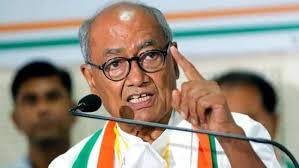Owaisi denounces Waqf bill, supports India-wide protest call by Muslim body
 Hyderabad: Asaduddin Owaisi, the chief of the All India Majlis-e-Ittehadul Muslimeen (AIMIM), has voiced strong opposition to the Waqf (Amendment) Bill, 2024, endorsing the All India Muslim Personal Law Board’s (AIMPLB) call for a country-wide protest against the proposed legislation.
Hyderabad: Asaduddin Owaisi, the chief of the All India Majlis-e-Ittehadul Muslimeen (AIMIM), has voiced strong opposition to the Waqf (Amendment) Bill, 2024, endorsing the All India Muslim Personal Law Board’s (AIMPLB) call for a country-wide protest against the proposed legislation.
According to Kashmir Media Service, speaking at a meeting in Mehboobnagar, Telangana, Owaisi criticized the bill as a serious threat to constitutional rights. He emphasized that the AIMPLB, an influential body representing Muslim clerics, has resolved to lead the nationwide protests and inform the public about the bill’s perceived constitutional violations.
The AIMPLB has condemned the bill as a conspiracy, asserting that it infringes on the community’s religious and cultural autonomy. They are calling for its immediate withdrawal, arguing that it undermines the rights and independence of Muslim Waqf institutions, which are responsible for managing charitable endowments and properties for the benefit of the Muslim community.
Introduced during the budget session of Parliament by the Modi government, the Waqf (Amendment) Bill, 2024, has sparked significant controversy and criticism. In response to widespread opposition, the government decided to refer the bill to a Joint Parliamentary Committee (JPC) for further examination. On August 30, the JPC convened for its second meeting at the Parliament House Annexe.
The committee sought input from various Muslim organizations, including the All India Sunni Jamiyatul Ulama in Mumbai, Indian Muslims for Civil Rights in Delhi, the Uttar Pradesh Sunni Central Waqf Board, and the Rajasthan Board of Muslim Waqf. These groups expressed concerns about several clauses of the bill, arguing that it interferes with matters of religious faith and practice and should not be subjected to government control.
Critics of the bill argue that it aims to exert greater control over Waqf assets and diminish the influence of Muslim organizations, thereby impacting the community’s religious and cultural heritage.








